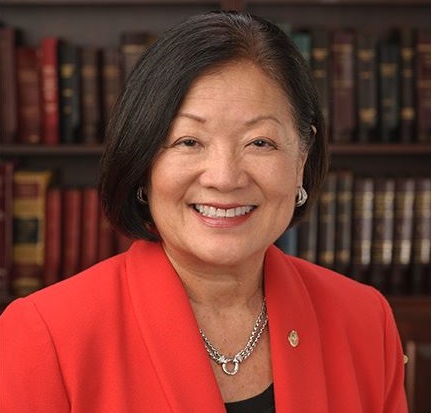April 30, 2019
“Over two million people in the United States are chronically infected with hepatitis B, and about 2,000 people die from hepatitis B-related liver disease each year. Yet only 25 percent of adults are vaccinated against hepatitis B. With the hepatitis B vaccine, we have the ability to prevent this infection and its serious consequences, which include liver cancer and cirrhosis. It is critical that we promote testing for hepatitis B, increase vaccination rates, and support access to care for individuals diagnosed with hepatitis B,” Senator Hirono said.
In addition to designating April 30 as “National Adult Hepatitis B Vaccination Awareness Day,” the resolution recognizes the importance of providing support for testing for hepatitis B, vaccination for individuals susceptible to infection, and linkages to care for those diagnosed with hepatitis B. The resolution also encourages a commitment to increasing adult hepatitis B vaccination rates and maintaining childhood hepatitis B vaccination rates in order to reduce the number of new hepatitis B infections and hepatitis B-related deaths.
Up to 2.2 million individuals in the United States are chronically infected with hepatitis B, and up to two-thirds are unaware of the infection. There is no cure for hepatitis B, and individuals living with chronic hepatitis require lifelong medical care. The hepatitis B vaccine is 95 percent effective and is considered the first anti-cancer vaccine because it prevents the leading cause of liver cancer worldwide. The vaccine is projected to prevent 310 million cases of hepatitis B worldwide from 1990 to 2020.
Today’s resolution comes at the conclusion of World Immunization Week, which takes place every year during the last week of April. The month of May is designated as Hepatitis Awareness Month to raise awareness of viral hepatitis and encourage priority populations to get tested.
The full text of the resolution is available here.
Senators Hirono, King Introduce Resolution to Designate April 30 as National Adult Hepatitis B Vaccination Awareness Day
WASHINGTON, D.C. –Today, Senators Mazie K. Hirono (D-Hawaii) and Angus King (I-Maine) introduced S.Res.177, a resolution supporting the designation of April 30, 2019, as “National Adult Hepatitis B Vaccination Awareness Day.” Hepatitis B is a viral infection of the liver transmitted via infected blood and other body fluids and is a leading cause of liver cancer.“Over two million people in the United States are chronically infected with hepatitis B, and about 2,000 people die from hepatitis B-related liver disease each year. Yet only 25 percent of adults are vaccinated against hepatitis B. With the hepatitis B vaccine, we have the ability to prevent this infection and its serious consequences, which include liver cancer and cirrhosis. It is critical that we promote testing for hepatitis B, increase vaccination rates, and support access to care for individuals diagnosed with hepatitis B,” Senator Hirono said.
In addition to designating April 30 as “National Adult Hepatitis B Vaccination Awareness Day,” the resolution recognizes the importance of providing support for testing for hepatitis B, vaccination for individuals susceptible to infection, and linkages to care for those diagnosed with hepatitis B. The resolution also encourages a commitment to increasing adult hepatitis B vaccination rates and maintaining childhood hepatitis B vaccination rates in order to reduce the number of new hepatitis B infections and hepatitis B-related deaths.
Up to 2.2 million individuals in the United States are chronically infected with hepatitis B, and up to two-thirds are unaware of the infection. There is no cure for hepatitis B, and individuals living with chronic hepatitis require lifelong medical care. The hepatitis B vaccine is 95 percent effective and is considered the first anti-cancer vaccine because it prevents the leading cause of liver cancer worldwide. The vaccine is projected to prevent 310 million cases of hepatitis B worldwide from 1990 to 2020.
Today’s resolution comes at the conclusion of World Immunization Week, which takes place every year during the last week of April. The month of May is designated as Hepatitis Awareness Month to raise awareness of viral hepatitis and encourage priority populations to get tested.
The full text of the resolution is available here.
###
